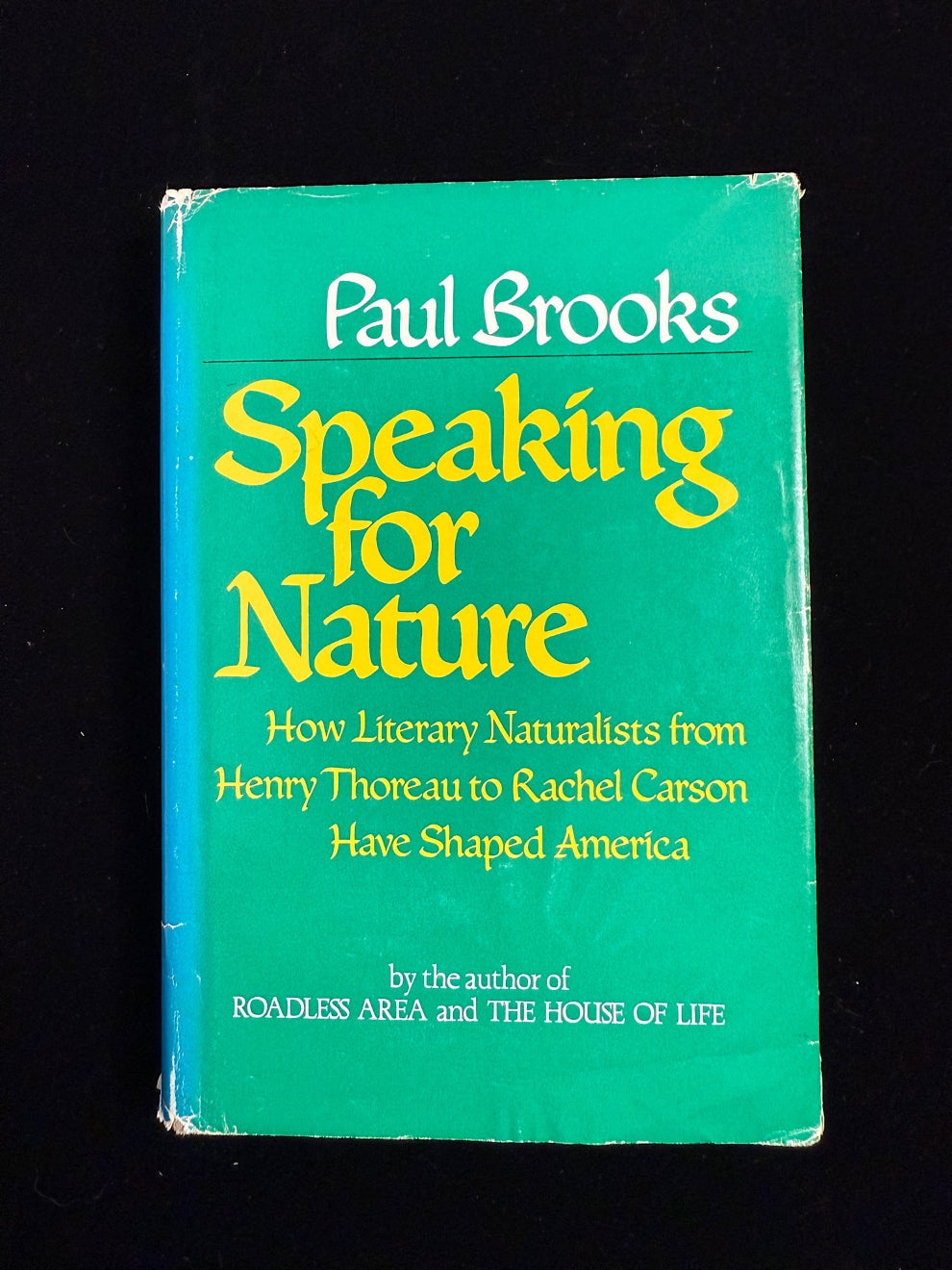Speaking for Nature
by Paul Brooks
Published by Houghton Mifflin Company, 1980
First Edition
This 1980 first edition first printing by Houghton Mifflin Company presents Paul Brooks's comprehensive examination of America's great literary naturalists, offering a 200-year history of the country's movement toward conservation from Henry Thoreau to Rachel Carson. Brooks, himself the author of Roadless Area and The House of Life, brings both scholarly rigor and personal passion to this essential study of how nature writing shaped American environmental consciousness. As a passionate environmental activist who traveled extensively, Brooks possessed unique qualifications to assess the impact of literary naturalists on American conservation efforts.
The book profiles those who led the fight to protect the environment and safeguard our natural heritage, including Henry David Thoreau, John Burroughs, John Muir, William Beebe, and Rachel Carson. Brooks demonstrates how these writers not only documented the natural world but actively shaped public opinion and policy regarding environmental protection. His analysis reveals the crucial role that eloquent prose played in transforming abstract conservation concepts into popular movements that achieved concrete legislative and cultural victories.
Beginning with Thoreau, Brooks shows how nature writers not only influenced our appreciation of the natural world but also helped to preserve American wilderness, from the Maine Woods to Yosemite and the Sierra. The book traces the evolution of nature writing from Transcendentalist philosophy through the emergence of scientific ecology, demonstrating how literary skill and scientific knowledge combined to create a powerful force for environmental protection. Brooks's narrative reveals the deep connections between aesthetic appreciation and conservation action.
This first edition represents an important contribution to both environmental history and American literary studies, appearing at a crucial moment when the modern environmental movement was consolidating its influence. Brooks's work provides essential context for understanding how individual writers shaped national environmental consciousness and established the intellectual foundations for contemporary conservation efforts. The book remains invaluable for students of American literature, environmental history, and anyone interested in the power of writing to effect social change.
A unique find, and we only have one.
File this Under










